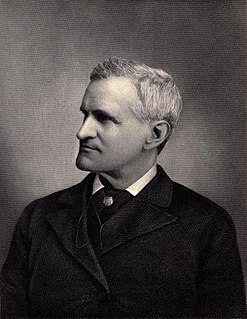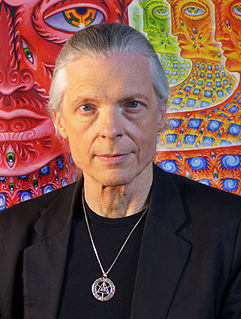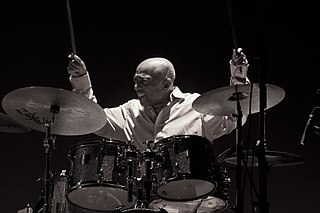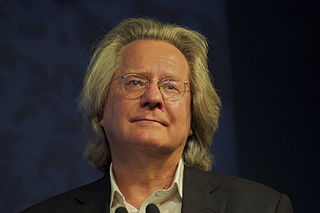Top 810 Buddhist Monk Quotes & Sayings - Page 13
Explore popular Buddhist Monk quotes.
Last updated on April 16, 2025.
The way of presentation is different according to each religion. In theistic religions like Buddhism, Buddhist values are incorporated. In nontheistic religions, like some types of ancient Indian thought, the law of karma applies. If you do something good, you get a good result. Now, what we need is a way to educate nonbelievers. These nonbelievers may be critical of all religions, but they should be decent at heart.
A certain monk told me that when he was very sick, his mother said to his father, "How our little boy is suffering. I would gladly give myself to be cut up into pieces if that would ease his suffering." Such is the love of God for people. He pitied people so much that he wanted to suffer for them, like their own mother, and even more. But no one can understand this great love without the grace of the Holy Spirit.
Fans of different races, castes, ethnicities and religions who together celebrate their diversity by uniting for a common national cause. They are my foundation, they are my family. I will play my cricket for them. Their spirit is the true spirit of cricket. With me are all my people. I am Tamil, Sinhalese, Muslim and Burgher. I am a Buddhist, a Hindu, a follower of Islam and Christianity. I am today, and always, proudly Sri Lankan
The word mantra comes from two Sanskrit words man, ("to think") and tra ("tool'). So the literal translation is "a tool of thought." And that's how mantras are used in Buddhist and Hindu practices, as tools that clear your mind of distractions. Because when you focus on repeating that mantra over and over again, soon the noise will die down and all you will hear is your inner voice.
God is not a Christian, God is not a Jew, or a Muslim, or a Hindu, or a Buddhist. All of those are human systems which human beings have created to try to help us walk into the mystery of God. I honor my tradition, I walk through my tradition, but I don't think my tradition defines God, I think it only points me to God.
There are many graphic artists who have interpreted The Ancient One as a Tibetan Buddhist Lama, we're kind of shifting that a bit. We're trying not to be fixed, we're trying not to be fixed to any one thing, any one gender, any one spiritual discipline, and any one race even; we're just trying to wing it beyond that. So it's a new gesture really, just another interpretation.
Would you say that any one sacred book is superior to all others in the world? ... I say the New Testament, after that, I should place the Koran, which in its moral teachings, is hardly more than a later edition of the New Testament. Then would follow according to my opinion the Old Testament, the Southern Buddhist Tripitaka, the Tao-te-king of Laotze, the Kings of Confucius, the Veda and the Avesta.
Imagine a multidimensiona l spider's web in the early morning covered with dew drops. And every dew drop contains the reflection of all the other dew drops. And, in each reflected dew drop, the reflections of all the other dew drops in that reflection. And so ad infinitum. That is the Buddhist conception of the universe in an image.
We cannot avoid the globalization of knowledge and information. When I was a boy growing up in Kansas, I could never think about a Buddhist, or a Hindu, or Muslim, or even a Protestant - I grew up in such a Catholic ghetto. That's not possible anymore, unless you live in a cave or something. So either we have knowledge of what the other religions and other denominations are saying, and how they tie into the common thread, or we end up just being dangerously ignorant of other people and therefore prejudiced.
"Moksha" is really a satire of myself. I've always been interested in Eastern spirituality. I'm particularly interested in enlightenment and the spiritual pursuit to liberate ourselves (I'm a Buddhist at heart). During my teenage years, I imagined I'd end up going to India to become a yogi; study with the last living saints in a cave; give up all my worldly possessions; learn to levitate. And there's still part of me that can see myself "disappearing" for some years at an ashram somewhere.
......the interesting thing was that the Roman Catholic monks and the Buddhist monks had no trouble understanding each other. Each of them was seeking the same experience and knew that the experience was incommunicable. The communication is only an effort to bring the hearer to the edge of the abyss; it is a signpost, not the thing itself. But the secular clergy reads the communication and gets stuck with the letter, and that's where you have the conflict.
The monk, the inquisitor, and the Jesuit were lords of Spain,- sovereigns of her sovereign, for they had formed the dark and narrow mind of that tyrannical recluse. They had formed the minds of her people, quenched in blood every spark of rising heresy, and given over a noble nation to a bigotry blind and inexorable as the doom of fate. Linked with pride, ambition, avarice, every passion of a rich, strong nature, potent for good and ill, it made the Spaniard of that day a scourge as dire as ever fell on man.
Prison life taught him how little one can get along with, and what extraordinary spiritual freedom and peace such simplification can bring. I remember again, ironically, that today more of us in the world have the luxury of choice between simplicity and complication of life. And for the most part, we, who could choose simplicity, choose complication. War, prison, survival periods, enforce a form of simplicity on us. The monk and the nun choose it of their own free will. But if one accidentally finds it, as I have for a few days, one finds also the serenity it brings.
Love is the capacity to take care, to protect, to nourish. If you are not capable of generatng that kind of energy toward yourself - if you are not capable of taking care of yourself, of nourishing yourself, of protecting yourself - it is very difficult to take care of another person. In the Buddhist teaching, it's clear that to love oneself is the foundation of the love of other people. Love is a practice. Love is truly a practice.
Dreams are a reservoir of knowledge and experience yet they are often overlooked as a vehicle for exploring reality. In the dream state our bodies are at rest, yet we see and hear, move about and are even able to learn. When we make good use of the dream state it is almost as if our lives were doubled: instead of a hundred years we live to be two hundred -- Tibetan Buddhist Tarthang Tulku from
Man is an onion made up of a hundred integuments, a texture made up of many threads. The ancient Asiatics knew this well enough, and in the Buddhist Yoga an exact technique was devised for unmasking the illusion of the personality. The human merry-go-round sees many changes: the illusion that cost India the efforts of thousands of years to unmask is the same illusion that the West has labored just as hard to maintain and strengthen.
Franz Kafka once said that happiness consists in having an ideal and not progressing towards it. If you did progress towards it, you'd be unhappy because you'd never be able to reach it. You can incrementally improve your life, but you never quite experience the glamour. You never quite get to your utopia, or whatever it is. And once you realize that you can be quite Buddhist about it, and say, "Well, okay, I'm just going to keep detached from it all."
I've always been fond of the idea expressed in Buddhist art, that there are certain objects that, just by seeing them, can plant a seed for liberation in the individual. That class of objects is called "liberation through seeing." Certain Buddha images are like that, but if it were possible, I would like to find contemporary non-traditional sacred images. Maybe it sounds pretentious, but most spiritual paths point to the possibility that we all can access the deep, absolute dimensions of reality.
Both my parents were agnostic. My mother was kind of a Buddhist. She had some spiritual tendencies, but they were kind of flaky - New Agey, you know? Which is partly why I'm suspicious of that sort of thing. I'm skeptical of any spiritual practice that doesn't involve other people and doesn't involve some sort of consistent tradition.
When I ask people to contemplate selflessness, the sometimes react as if I've asked them to put their house on the market or give away all their money. If there was a self that existed in the way we think, discovering selflessness would be like putting our house on the market. But in the Buddhist tradition, the discovery of selflessness is called "completely joyful." It's not called "the raw end of the deal," or "I'd rather go back to bed," or "This is scary and depressing."
All Jesus' pictures are falsifications; they cannot be about the real Jesus. This real man must have been totally different, because we know he enjoyed drinking - it is impossible to think of a person who enjoys drinking and not laughing. He enjoyed women - it is difficult to think of a man who enjoys women and not laughing. He was friendly, almost in love, with a prostitute, Mary Magdalene. It is difficult to move with a prostitute - he was not moving with a Catholic monk, not with a priest, not with the Pope... with a prostitute! These were the condemnations against him.
A Dominican monk, Father Henri Didon, used it as a watchword for his pupils in sports at Arcueil College in Paris. Baron Pierre De Coubertin, founder of the modern Olympics, made it the Olympic Games ideal adopted at the Antwerp Games in 1920. I never mentioned winning to my players. I mentioned constantly that all I wanted them to do was the best they could. If they're good enough, the score will be to their liking; if they're not, it won't be but that's nothing to hang their head about. Sometimes the other fellow is just better than you are.
When you climb a ladder and arrive on the sixth step and you think that is the highest, then you cannot come to the seventh. So the technique is to abandon the sixth in order for the seventh step to be possible. And this is our practice, to release our views. The practice of nonattachment to views is at the heart of the Buddhist practice of meditation.
Crucial to how we feel is being aware of how we are feeling in the moment. The sine qua non of that is to realize that you are being emotional in the first place. The earlier you recognize an emotion, the more choice you will have in dealing with it. In Buddhist terms, it's recognizing the spark before the flame. In Western terms, it's trying to increase the gap between impulse and saying or doing something you might regret later.
Ignorance, vulnerability, fear, anger, and desire are expressions of the infinite potential of your buddha nature. There's nothing inherently wrong or right with making such choices. The fruit of Buddhist practice is simply the recognition that these and other mental afflictions are nothing more or less than choices available to us because our real nature is infinite in scope.
Celibacy is one of the most unnatural things. It has destroyed so many human beings - millions - Catholic monks, Hindu monks, Buddhist monks, Jaina monks, nuns. For centuries they have been teaching celibacy; and the most amazing thing is, even in the twentieth century, not a single medical expert, physiologist, has stood up and said that celibacy is impossible, that in the very nature of things, it cannot happen.
I think a lot of people trying to follow Buddhism these days are getting confused about sex and they don't understand what's going on. They've been exposed to a contemporary Christian idea that sex itself is evil and bad, which I'm not so sure was Jesus' idea. For me, the Buddhist approach isn't that sex itself is evil or bad but that sex is neutral. It's the way you do it that can problematic.
Within the framework of the Buddhist Path, reflecting on suffering has tremendous importance because -realizing the nature of suffering, you will develop greater resolve to put an end to the causes of suffering and the unwholesome deeds which lead to suffering. And it will increase your enthusiasm for engaging in the wholesome actions and deeds which lead to happiness and joy.
I always did drawings. Then, few years ago, I started working with large-scale paper. It's an extension of performance, because the pieces are the size of my full body. I use pencils, acrylic, watercolors, and I also incorporate textual messages. I did most of them in a monastery in Spain at the top of a mountain. I lived there a bit like a monk. I meditate quite often. At night, which is when I like to work, I like to think I have conversations with Francisco Goya. He died so many years ago, of course, but somehow, his ghost is always with me.
I remember [Joe] Lovano came around to me at that time [of Monk competition]. And I had taken some lessons with Joe and I had seen Joe on the scene. He had always been so great to me, such and inspiration and so kind. One lesson that I had with Joe was just amazing. I'm just such a fan and an admirer of his on every level. He was like, "Don't worry... you're just out here. You just do what you're doing. Don't worry if it doesn't make you a household name or anything."
Mythology is not a lie, mythology is poetry, it is metaphorical. It has been well said that mythology is the penultimate truth--penultimate because the ultimate cannot be put into words. It is beyond words. Beyond images, beyond that bounding rim of the Buddhist Wheel of Becoming. Mythology pitches the mind beyond that rim, to what can be known but not told.
They have no business administering government policies in a country that favors freedom and equality. ... Can you imagine having the Ayatollah Ruhollah Khomeini as defense minister, or Mahatma Gandhi as minister of health, education, and welfare The Hindu and Buddhist idea of karma and the Muslim idea of kismet, or fate condemn the poor and the disabled to their suffering. ... It's the will of Allah. These beliefs are nothing but abject fatalism, and they would devastate the social gains this nation has made if they were ever put into practice.
I'm not sure if Cupitt himself still uses this term, but it's useful in suggesting that, actually, there are more choices than the choice between nihilism and faith. In fact, the issue may not be faith as such but the fact that for millennia, Christianity has buttressed itself with a particular kind of metaphysics that has now seemingly reached the end of its life-span. But perhaps Buddhist metaphysics could provide an alternative here - or, at least, offer a direction of travel.
I have learned so much from God that I can no longer call myself a Christian, a Hindu, a Muslim, a Buddhist, a Jew. The Truth has shared so much of Itself with me that I can no longer call myself a man, a woman, an angel, or even a pure Soul. Love has befriended me so completely it has turned to ash and freed me of every concept and image my mind has ever known.
What God is doing today is calling people out of the world for His name. Whether they come from the Muslim world, or the Buddhist world, or the Christian world, or the non-believing world, they are members of the body of Christ because they've been called by God. They may not even know the name of Jesus, but they know in their hearts they need something that they don't have and they turn to the only light they have and I think they're saved and they're going to be with us in heaven.
As a book person and a movie person, I feel Jewish. My Dad was more Buddhist than anything, and on the West Coast I've often had the impression that Jews become Buddhists. I think, if anything, my religion has more to do with California consciousness, vibrations and energy. My wife isn't Jewish. There's nothing ceremonial going on at our house, I mean, occasionally a candle gets lit. But, definitely, my Judaism is an ongoing relationship, one that remains to be consummated.
We need a sense of the oneness of the 7 billion human beings alive today. When I meet people, I don't think about being different from them, about being Tibetan, Buddhist or even the Dalai Lama. I only think about being a human being. We all share the potential for positive and negative emotions, yet one of our special qualities is our human mind, our intelligence. If we use it well we'll be successful and happy.
There was a lot that was tricky about playing with [Thelonious Monk]. It's a musical language where there's really no lyrics. It's something you feel and you're hearing. It's like an ongoing conversation. You really had to listen to this guy. Cause he could play the strangest tempos, and they could be very in-between tempos on some of those compositions. You really had to listen to his arrangements and the way he would play them. On his solos, you'd really have to listen good in there. You'd have to concentrate on what you were doing as well.
I think East Asian countries, I think they're very fortunate to have Buddhism survive as a strong influence because right from the time when Buddha himself, 2,500 years ago, made the point about the importance of education, and the word "Buddha" also means enlighten[ed] or educated. So all the Buddhist countries, not only Japan and Korea and China and Hong Kong and Thailand but also even Burma and Sri Lanka, had a higher level of education.
That a thing made by hand, the work and thought of a single craftsman, can endure much longer than its maker, through centuries in fact, can survive natural catastrophe, neglect, and even mistreatment, has always filled me with wonder. Sometimes in museums, looking at a humble piece of pottery from ancient Persia or Pompeii, or a finely wrought page from a medieval illuminated manuscript toiled over by a nameless monk, or a primitive tool with a carved handle, I am moved to tears. The unknown life of the maker is evanescent in its brevity, but the work of his or her hands and heart remains.
Then another thing, now this is mainly for our interest about Tibet, our struggle. Whole struggle depend on within person. For dangerous. Foolish! Not for this only institution or even not only for Buddhist dogma, but before national sort of right, our right. So therefore this struggle must carried by people themselves.
Nowadays, by contrast, Christianity specialises in soft-focus mood music; its threats of hell, its demand for poverty and chastity, its doctrine that only the few will be saved and the many damned, have been shed, replaced by strummed guitars and saccharine smiles. It has reinvented itself so often, and with such breathtaking hypocrisy, in the interests of retaining its hold on the gullible, that a medieval monk who woke today, like Woody Allen's Sleeper, would not be able to recognise the faith that bears the same name as his own.
I live for the moment. I'm basically a Buddhist-type person. I'm just here right now, and I don't think about what's going to happen a hundred years from now. I try to concentrate on what's going on right now. But I'm really trying to run this company like it is going to be here a hundred years from now. That's what's important.
If you exchanged wedding vows, tape them to your bathroom mirror and read them aloud to yourself every morning along with the ritual brushing of teeth. It's not realistic to believe that you will live your promises as a daily practice -- unless you're a saint or a highly evolved Zen Buddhist. Not where marriage is concerned. But you can make a practice of returning to your vows when the going gets rough.
Taoist chanting, Confucian chanting, Christian chanting, Buddhist chanting don't matter. Chanting Coca Cola, Coca Cola, Coca Cola … can be just as good if you keep a clear mind. But if you don't keep a clear mind, and are only following your thinking as you mouth the words, even the Buddha cannot help you.
I'm not [a Buddhist]. The whole point of anything that is really, truly valuable to your soul, and your own growth, is not to attach to a teacher, but rather to find out what the real deal is in the world itself. You become your own guide. The teachings can help you, but really, we're all here with the opportunity the reality of hereness. We all have that. I trust that...I'm just not interested in labels. I find all of them constrictive. They're hard to wear. And they're hard to wear because we're always - hopefully - growing.
I never really wanted to have a Guru, I was more interested in Buddhist philosophy and meditation, and had a psychological background in college, but he had so much love. To be with him, there was nowhere else to be and nothing else to do. Nothing he taught, philosophy or meditation, are the things I went to India to look for, or was interested in, but he sort of jumped into my heart and then pulled, he pried it open.
I think it's more, at least at the time, a sense of abstraction. My mind doesn't really work in a way where there's a definitive sense of something. I go one way and then it opens up into a million different ideas, and somehow, when you look at the art, Buddhist art, or particularly Tibetan art, you know, it's a similar thing. All of a sudden there are a million lotus leaves and you're following one to the next and to another, and I related to that, and it felt simple and easy to me. And it made me feel smart.
It is neither just the religious, the spiritual, the power-hungry, the evil, the ignorant, the corrupt, the Christian, the Muslim, the Hindu, the Buddhist, the Jew, nor the atheist that makes a hypocrite, but being a human being. Any man who thinks himself to be free of hypocrisy while committed to cherry-picking others for such, I am confident, the Almighty can prove to him a great deal of his own hypocrisy even beyond his earthly comprehension.
Book burning is a charming old custom, hallowed by antiquity. It has been practiced for centuries by fascists, communists, atheists, school children, rival authors, and tired librarians. Like everything of importance since the invention of the cloak and the shroud, its origins are cloaked in mystery and shrouded in secrecy. Some scholars believe that the first instance of book burning occurred in the Middle Ages, when a monk was trying to illuminate a manuscript. All agree that book burning was almost non-existent during the period when books were made of stone.
There is this persistent theme in all of these notions that death is made more easy, whatever that means, if you've learned the territory before you get there. And you know, in the Mahayana Buddhist situation it even becomes as extreme as saying; 'life is essentially a preparation for death, a studying of the maps of a learning of the skills a packing of your picnic basket so that when you get out there and demons are sniffing you up one side and down the other you don't bungle your mantras'.
While the primary function of formal Buddhist meditation is to create the possibility of the experience of "being," my work as a therapist has shown me that the demands of intimate life can be just as useful as meditation in moving people toward this capacity. Just as in formal meditation, intimate relationships teach us that the more we relate to each other as objects, the greater our disappointment. The trick, as in meditation, is to use this disappointment to change the way we relate.
The identity of just one thing, the "clash of civilization" view that you're a Muslim or a Hindu or a Buddhist or a Christian, I think that's such a limited way of seeing humanity, and schools have the opportunity to bring out the fact that we have hundreds of identities. We have our national identity. We have our cultural identity, linguistic identity, religious identity. Yes, cultural identity, professional identity, all kinds of ways.
This is the path of prayer-contemplative prayer, that is, as distinct from simple prayers of supplication and thanksgiving-which is a specific discipline of thought, desire, and action, one that frees the mind from habitual prejudices and appetites, and allows it to dwell in the gratuity and glory of all things. As an old monk on Mount Athos once told me, contemplative prayer is the art of seeing reality as it truly is; and, if one has not yet acquired the ability to see God in all things, one should not imagine that one will be able to see God in himself.
As a Buddhist, I view death as a normal process, a reality that I accept will occur as long as I remain in this earthly existence. Knowing that I cannot escape it, I see no point in worrying about it. I tend to think of death as being like changing your clothes when they are old and worn out, rather than as some final end. Yet death is unpredictable: We do not know when or how it will take place. So it is only sensible to take certain precautions before it actually happens.
There yet remains but one concluding tale, And then this chronicle of mine is ended - Fulfilled, the duty God ordained to me, A sinner. Not without purpose did the Lord, Put me to witness much for many years, And educate me in the love of books. One day some indefatigable monk, Will find my conscientious, unsigned work; Like me, he will light up his ikon-lamp, And, shaking from the scroll the age-old dust, He will transcribe these tales in all their truth.
Buddhist words such as compassion and emptiness don't mean much until we start cultivating our innate ability simply to be there with pain with an open heart and the willingness not to instantly try to get ground under our feet. For instance, if what we're feeling is rage, we usually assume that there are only two ways to relate to it. One is to blame others. Lay it all on somebody else; drive all blames into everyone else. The other alternative is to feel guilty about our rage and blame ourselves.

















































